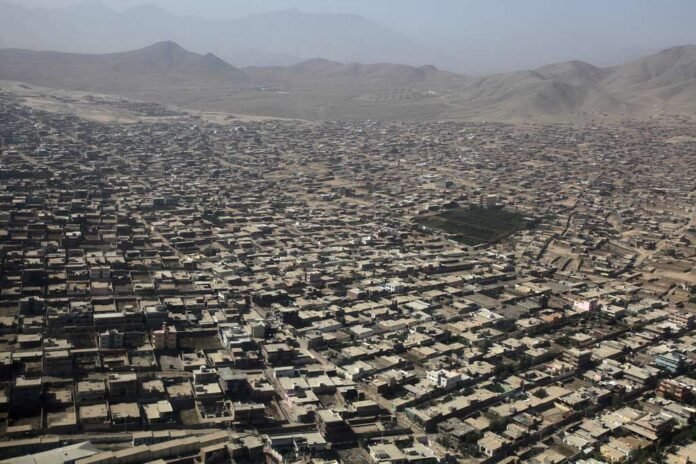Bahrain’s healthcare system merges public health oversight and funding with a growing private insurance sector. Together, they address the medical needs of citizens and expatriates under the 2019 Mandatory Health Insurance Law. Although both aim to ensure healthcare access, they differ in structure, scope, and service delivery.
Similarities Between Public and Private Health Insurance
- Coverage for Residents and Expats:
Bahrain’s public and private systems serve both nationals and expatriates. The public system, supported by subsidies and regulations, covers all citizens. In contrast, private insurers mainly serve expatriates and private-sector workers, as mandated by law. - Mandatory Framework:
Bahrain’s Health Insurance Law mandates coverage for all. Employers insure foreign workers via private insurers; the government covers citizens. This aims for universal health coverage. - Quality Monitoring and Regulation:
The National Health Regulatory Authority (NHRA) and the Ministry of Health oversee all health insurance services, both public and private. They ensure that providers comply with quality standards and adhere to legal frameworks. - Network Access to Private Providers:
Citizens and private insurance clients can use private hospitals and clinics, but co-payment amounts differ. Both systems share infrastructure and service providers.
Differences Between Public and Private Health Insurance
- Source of Funding and Management:
- Bahraini nationals receive government-funded public health coverage through state healthcare facilities. In contrast, private health insurance is financed by employers or individuals and administered by private or multinational insurers such as Cigna, Bupa Global, and AXA.
- Bahraini nationals receive government-funded public health coverage through state healthcare facilities. In contrast, private health insurance is financed by employers or individuals and administered by private or multinational insurers such as Cigna, Bupa Global, and AXA.
- Coverage Depth and Flexibility:
- Public insurance provides essential services like primary care, hospital visits, and chronic illness management at government hospitals.
- Private health insurance offers advanced options like international care, maternity benefits, wellness packages, and emergency evacuation, attracting expatriates and high-income individuals..
- Public insurance provides essential services like primary care, hospital visits, and chronic illness management at government hospitals.
- Cost and Co-payment:
- Bahraini citizens enjoy nearly free public healthcare, paying little to nothing. For private healthcare, the government covers 60%, and citizens pay the remaining 40%.
- Private insurance requires paying premiums, deductibles, and co-pays, which vary by plan and provider. Yet, it provides quicker access, reduced wait times, and private room choices.
- Bahraini citizens enjoy nearly free public healthcare, paying little to nothing. For private healthcare, the government covers 60%, and citizens pay the remaining 40%.
- Accessibility and Eligibility:
- Bahraini citizens have public healthcare access, while expats get only emergency and primary care at public facilities. Private insurance is available to all, offering customized plans for individuals, families, and businesses, focusing on foreign workers.
- Bahraini citizens have public healthcare access, while expats get only emergency and primary care at public facilities. Private insurance is available to all, offering customized plans for individuals, families, and businesses, focusing on foreign workers.
Top Public Health Insurance Options in Bahrain
Bahrain’s health insurance system provides universal coverage mainly for citizens, with restricted access for expatriates via state services. The government doesn’t operate various competing insurance companies but instead provides services through national programs and ministries. These are overseen by the Ministry of Health and the National Health Regulatory Authority (NHRA).
1. Bahrain Ministry of Health (MOH) Public Health Coverage
- Cost: Free for Bahraini nationals at government facilities; partial subsidies for private care (citizens pay up to 40%)
- Available Services: Comprehensive healthcare services including primary care, emergency services, surgery, maternity, vaccinations, chronic disease management, and mental health
- Open for All or Limited: Available to Bahraini citizens; emergency and primary care access only for expatriates
- Core Financial Features: Fully funded by the government budget, covering operational costs of public hospitals and clinics; subsidies available for select private treatments
- Consumer Satisfaction Score: 8.6/10
Strengths: High accessibility, free essential services
Challenges: Occasional delays in specialized treatments and elective surgery wait times
2. Social Insurance Organization (SIO) – Health Security Program
- Cost: Included as part of national social protection; no direct charge to citizens
- Available Services: Healthcare for elderly citizens and support for chronic conditions and disability-related services
- Open for All or Limited: Limited to retirees, elderly, and registered social protection beneficiaries
- Core Financial Features: Funded through national pension and insurance contributions; no additional premiums
- Consumer Satisfaction Score: 8.4/10
Strengths: Targeted assistance for vulnerable groups
Challenges: Limited scope and reliant on documentation and eligibility screening
3. National Health Insurance Program (Sehati Initiative – Pilot Phase)
- Cost: Government-funded pilot; no cost to patients currently enrolled
- Available Services: Integrated electronic health records, preventive screenings, and primary care
- Open for All or Limited: Currently in pilot stage, available in select centers and facilities
- Core Financial Features: Financed through Ministry of Health; future versions may involve co-financing models
- Consumer Satisfaction Score: 7.9/10
Strengths: Tech-enabled, patient-centric care
Challenges: Limited implementation; early feedback stage
4. Emergency & Primary Care Access for Foreign Workers
- Cost: Paid by employers via mandatory insurance; subsidized at government facilities for emergencies
- Available Services: Emergency care, vaccinations, and basic primary healthcare at public hospitals
- Open for All or Limited: Open to foreign workers under labor law mandates
- Core Financial Features: Government subsidizes up to 60% of costs; employer covers rest through insurance
- Consumer Satisfaction Score: 7.2/10
Strengths: Ensures basic healthcare access for migrant workers
Challenges: Limited service scope and quality disparities compared to private sector
5. National Health Regulatory Authority (NHRA) Oversight and Public Contracts
- Cost: Not a direct provider but coordinates public health service contracts and pricing
- Available Services: Monitors and regulates quality of care, pricing, and insurance contracts
- Open for All or Limited: Universal oversight role, impacts all public healthcare users
- Core Financial Features: Government-funded; indirectly affects cost control and service expansion
- Consumer Satisfaction Score: 8.0/10
Strengths: Enhances transparency and service consistency
Challenges: Public not always aware of NHRA’s role in care quality
Top 5 Private Health Insurance Providers in Bahrain
Bahrain’s private health insurance market is well-developed, offering a range of options tailored primarily for expatriates, private-sector employees, and individuals seeking enhanced healthcare access beyond the public system. The private insurers combine local expertise with international networks, providing comprehensive plans that cover a wide spectrum of medical needs. Below are the top five private health insurance providers in Bahrain, described individually.
1. Cigna Bahrain(Official Website: https://www.cigna-me.com/en/businesses/bahrain)
- Cost: Premiums vary widely; individual plans start around BHD 500/year, corporate plans priced by group size and coverage level.
- Available Services/Coverage Features: Comprehensive inpatient and outpatient care, maternity, emergency, dental, mental health support, international medical coverage, and wellness programs.
- Open for All or Limited: Open to individuals, families, and corporate clients—especially expatriates.
- Core Financial Features: Offers flexible payment options, cashless hospital network, global coverage, and direct billing with many providers.
- Consumer Satisfaction Score: 9.0/10 — Highly rated for international coverage and customer service responsiveness.
2. Allianz Care (Partnered with Orient Insurance PJSC)(Official Website: https://www.allianzcare.com/en/personal-international-health-insurance/products-and-services/specialised-international-plans/plans-for-bahrain.html)
- Cost: Plans start from approximately BHD 400/year for basic coverage, with customizable options increasing costs.
- Available Services/Coverage Features: Covers inpatient/outpatient care, maternity, emergency evacuation, chronic conditions, and access to local and global healthcare providers.
- Open for All or Limited: Available to individuals and companies, focusing on expatriate and premium clients.
- Core Financial Features: Competitive premiums with a variety of deductible and co-payment choices; strong global insurer backing ensures financial stability.
- Consumer Satisfaction Score: 8.8/10 — Valued for flexibility and global access.
3. Bupa Global Bahrain(Official Website: https://www.bupaglobal.com/en/bahrain)
- Cost: Typically starts around BHD 600/year for individual plans, with family and corporate plans priced higher depending on coverage.
- Available Services/Coverage Features: Extensive inpatient and outpatient care, chronic illness management, maternity, preventive care, dental, and worldwide emergency assistance.
- Open for All or Limited: Targets expatriates and high-net-worth individuals; open to individuals, families, and businesses.
- Core Financial Features: Known for premium plans, fast claims processing, cashless facilities, and broad hospital networks globally.
- Consumer Satisfaction Score: 9.2/10 — Highly praised for premium service quality and global healthcare access.
4. AXA Global Healthcare(Official Website: https://www.axaglobalhealthcare.com/en/bahrain)
- Cost: Entry-level plans start near BHD 450/year; fully comprehensive plans can exceed BHD 1,000/year depending on benefits.
- Available Services/Coverage Features: International inpatient/outpatient treatment, maternity, mental health, specialist consultations, and wellness programs.
- Open for All or Limited: Primarily expat-focused; available for individuals, families, and corporate clients.
- Core Financial Features: Offers a global network, cashless claims, flexible plan structures, and 24/7 customer support.
- Consumer Satisfaction Score: 8.7/10 — Well-regarded for ease of use and global reach.
5. DavidShield Group(Official Website: https://www.davidshield.com/bahrain)
- Cost: Plans typically begin around BHD 350/year for basic coverage with premium options available.
- Available Services/Coverage Features: Comprehensive expatriate-focused health plans including inpatient/outpatient care, emergency evacuation, chronic care, and international medical assistance.
- Open for All or Limited: Specializes in expatriates and corporate groups; open to individuals and companies.
- Core Financial Features: Competitive premiums, direct billing, global provider access, and emergency medical evacuation.
- Consumer Satisfaction Score: 8.5/10 — Noted for specialist expatriate services and customer support.
READ MORE: Private and public health insurance of Saudi Arabia (Make informed choices)


